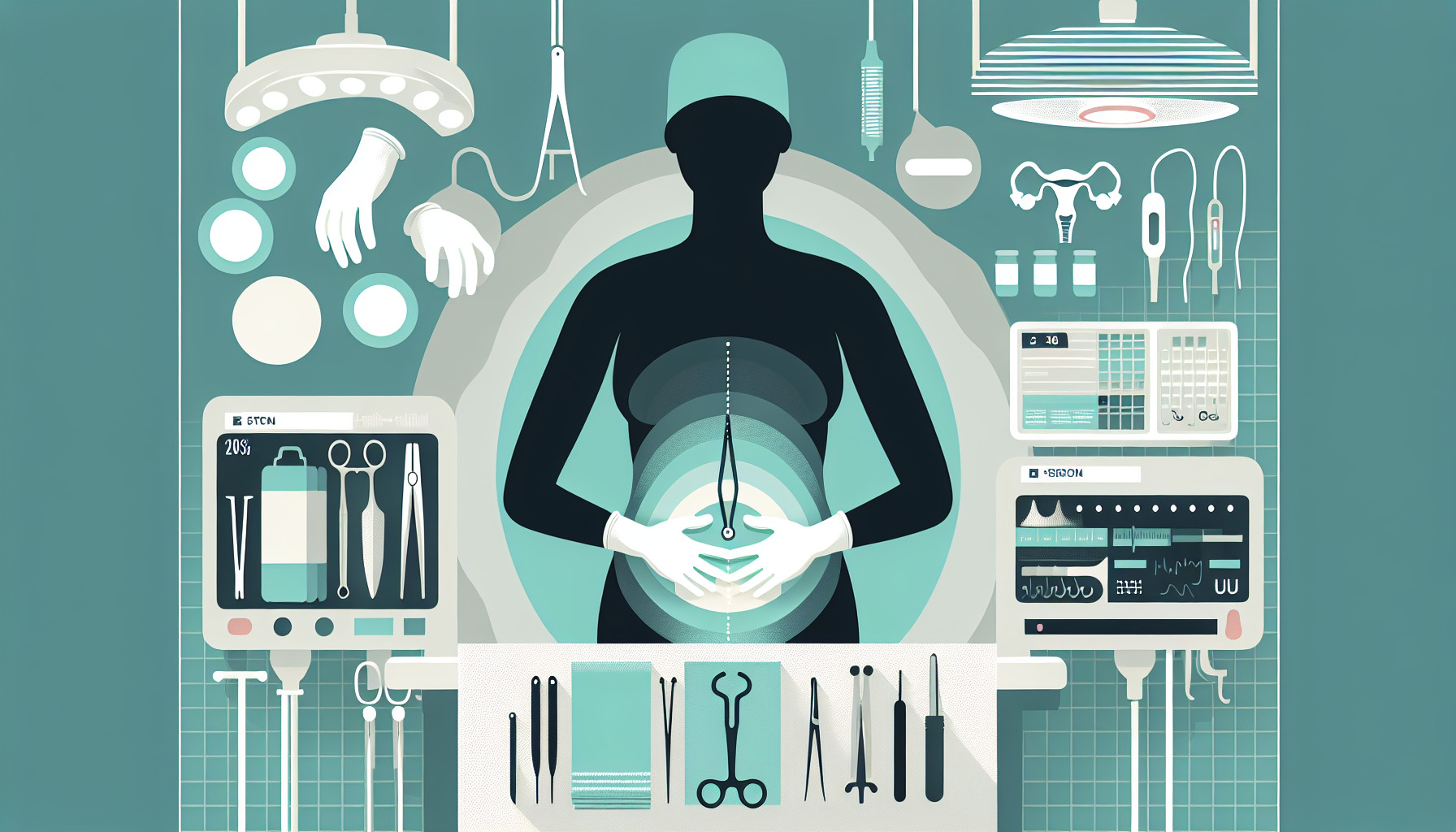Our Summary
This research looked at whether fixing a hernia at the same time as performing a hysterectomy (removal of the uterus) leads to more complications. To do this, the researchers looked at data from a nationwide surgical database in the US, covering the years 2005-2019. They compared patients who had a hysterectomy only, with those who had a hysterectomy and hernia repair at the same time.
The results showed that having a hernia repair at the same time as a hysterectomy did lead to a longer surgery time and a longer hospital stay. It also increased the risk of both major and minor complications. However, in certain groups of patients - those with a Body Mass Index under 40, those under 40 or over 60 years old, and those with tobacco use, diabetes, or a minimally invasive surgical approach - the risk of complications was similar for those having a hysterectomy only and those having a hysterectomy with hernia repair.
For patients having a hysterectomy because of cancer, having a hernia repair at the same time did mean a longer time in surgery and a longer hospital stay, but it didn’t increase the risk of complications.
In conclusion, having a hernia repair at the same time as a hysterectomy does generally increase the risk of complications. But for certain groups of patients, the risk is similar to having a hysterectomy only.
FAQs
- Does having a hernia repair at the same time as a hysterectomy increase the risk of complications?
- Are there certain groups of patients who have similar risks of complications whether they have a hysterectomy alone or a hysterectomy with hernia repair?
- Does having a hysterectomy due to cancer and a hernia repair at the same time increase the risk of complications?
Doctor’s Tip
A helpful tip a doctor might tell a patient about hysterectomy is to discuss the possibility of having a hernia repair at the same time with their surgeon, taking into consideration their individual risk factors and overall health. It is important to weigh the potential benefits of addressing both issues simultaneously against the increased risk of complications. Patients should also be aware that the combination procedure may result in a longer surgery time and hospital stay.
Suitable For
Patients who are recommended hysterectomy typically have conditions such as uterine fibroids, endometriosis, abnormal uterine bleeding, pelvic inflammatory disease, chronic pelvic pain, or gynecologic cancers such as cervical, ovarian, or uterine cancer. Additionally, patients with conditions that may benefit from removal of the uterus to alleviate symptoms or improve quality of life may also be recommended for a hysterectomy.
Timeline
Before the hysterectomy, a patient may have been experiencing symptoms such as pelvic pain, heavy menstrual bleeding, or other issues related to the uterus. They would have likely consulted with their healthcare provider and undergone various tests and evaluations to determine if a hysterectomy is the best course of treatment for their condition.
After the hysterectomy, the patient would have undergone the surgical procedure to remove the uterus. They may experience some pain, discomfort, and fatigue in the immediate post-operative period. Recovery time can vary depending on the type of hysterectomy performed (such as abdominal, vaginal, or laparoscopic) and individual factors.
In the case of having a hernia repair at the same time as the hysterectomy, the patient may experience a longer surgery time and hospital stay. They may also be at a higher risk of complications compared to those who only had a hysterectomy. However, for certain groups of patients with specific characteristics, the risk of complications may be similar to having a hysterectomy only.
Overall, the timeline for a patient before and after a hysterectomy can vary depending on individual factors and any additional procedures performed during the surgery. It is important for patients to discuss the risks and benefits with their healthcare provider and follow their post-operative care instructions to ensure a successful recovery.
What to Ask Your Doctor
Some questions a patient should ask their doctor about hysterectomy include:
- Is it necessary to have a hernia repair at the same time as my hysterectomy?
- What are the potential risks and complications of having a hernia repair during my hysterectomy?
- How will having a hernia repair affect the length of my surgery and hospital stay?
- Are there certain factors, such as age, BMI, or medical conditions, that may influence the risk of complications if I have a hernia repair during my hysterectomy?
- Will having a hernia repair impact my recovery time or the success of my hysterectomy?
- Are there alternative treatment options for my hernia that do not involve having surgery during my hysterectomy?
- What is the success rate of having a hernia repair at the same time as a hysterectomy?
- How will having a hernia repair affect my long-term health and well-being after my hysterectomy?
- Are there any specific precautions or steps I should take before or after surgery if I choose to have a hernia repair during my hysterectomy?
- Can you provide me with more information or resources to help me make an informed decision about whether to have a hernia repair during my hysterectomy?
Reference
Authors: Lim SL, Knochenhauer H, Truong T, Weber JM, Havrilesky LJ, Previs RA. Journal: Obstet Gynecol. 2023 Nov 1;142(5):1113-1124. doi: 10.1097/AOG.0000000000005371. Epub 2023 Sep 28. PMID: 37769312
